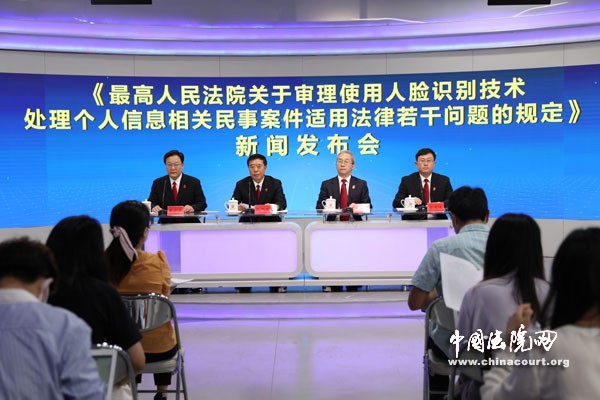Supreme law: the property shall not force face recognition as the only verification method for entering and leaving the community.

Cctv newsOn July 28th, the Supreme People’s Court issued the Provisions of the Supreme People’s Court on Several Issues Concerning the Application of Laws in the Trial of Personal Information-related Civil Cases (hereinafter referred to as the Provisions).
Samuel Kwok, deputy director of the Supreme Law Research Office, said that with the continuous enrichment of the application scenarios of face recognition technology, some communities introduced face recognition systems, replacing "swiping cards" with "brushing faces". Some people think that when entering face information, residential property requires that face information be bound with detailed address and identity information, and once this information is leaked, it may cause damage to personal privacy.
Samuel Kwok said that the investigation found that people were concerned about the installation of face recognition equipment in residential properties, focusing on the issue of compulsory "face brushing". Face information belongs to sensitive personal information, and the collection and use of face information by residential property must obtain the consent of the owner or property user according to law. Only when owners or property users voluntarily agree to use face recognition can the collection and use of face information have a legal basis. In practice, some residential properties force residents to enter face information, and face recognition is the only verification method for entering and leaving the residential area. This behavior violates the principle of "informing and agreeing", and the masses have a loud voice of doubt. We should embrace new technology, but at the same time we should respect the rights and interests of personality. Residential property cannot infringe on residents’ personality rights and interests on the grounds of intelligent management. To this end, the first paragraph of Article 10 of the Regulations specifically stipulates: "Property service enterprises or other building managers use face recognition as the only verification method for owners or property users to enter and leave the property service area. If the owners or property users who disagree request them to provide other reasonable verification methods, the people’s courts will support them according to law." According to this regulation, when using the face recognition access control system to enter face information, the residential property should obtain the consent of the owner or the property user. For those who disagree, the residential property should provide alternative verification methods and shall not infringe on the personality rights and other legitimate rights and interests of the owner or the property user.
In addition, in order to better regulate the realty service enterprise or other managers and prevent them from leaking face information or infringing on the privacy of the owners or property users, the Regulations clearly state that the realty service enterprise or other building managers have the circumstances specified in Article 2 of the Regulations, and if the parties request the realty service enterprise or other building managers to bear tort liability, the people’s court shall support them according to law. "This has fully protected the face information of owners and other property users." Samuel Kwok said.